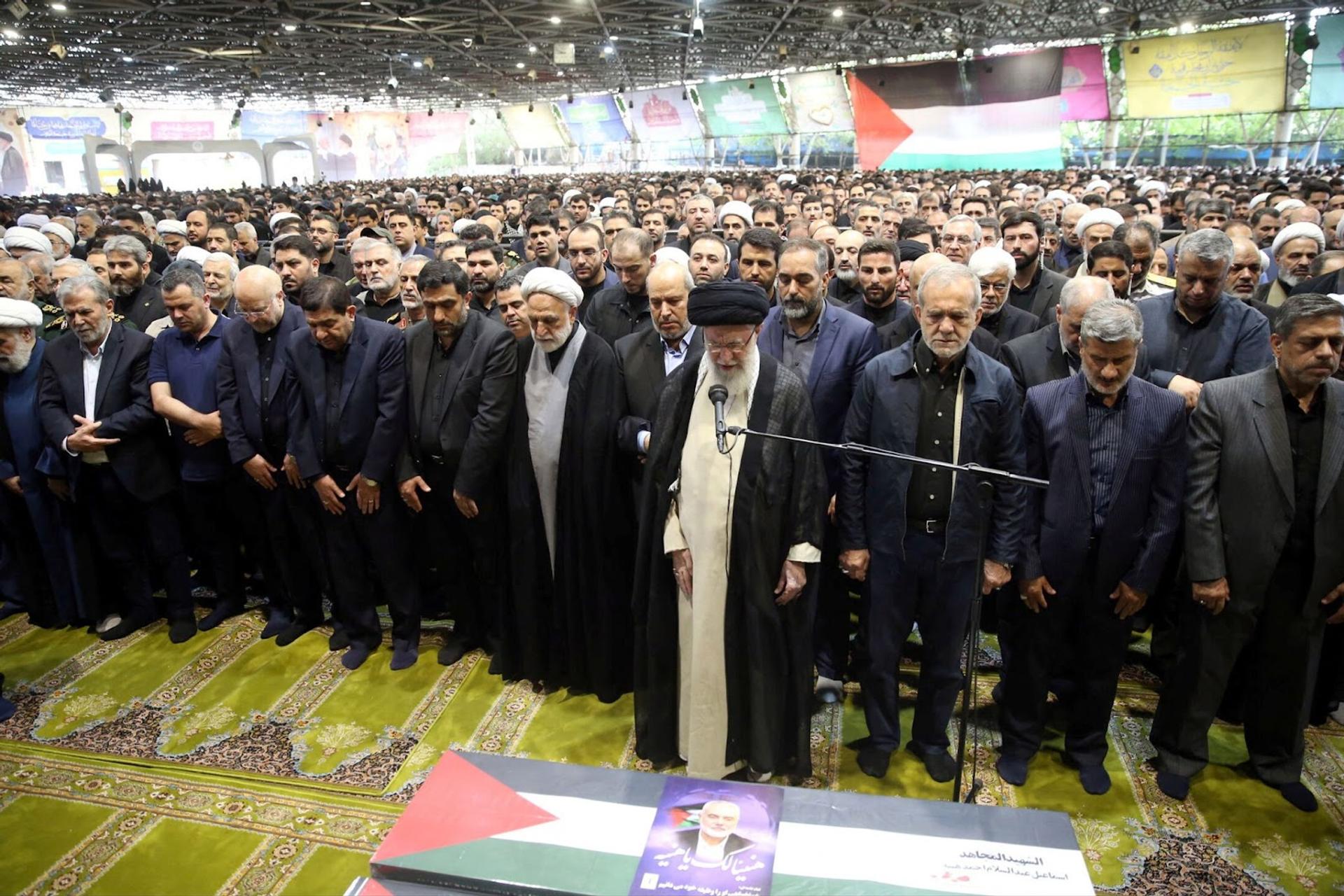
Semafor Signals
US, Israel brace for Iran response following Haniyeh killing
Insights from Axios, Reuters, The Washington Post, and the Washington Institute for Near East Policy

The News
Hezbollah leader Hassan Nasrallah warned that Israel crossed “a red line” with recent assassinations of senior members of Hezbollah and the Palestinian militant group Hamas. His remarks came as the Lebanese group claimed credit for dozens of rockets fired into Israel.
Israel and the US are now bracing for a response from Tehran and its proxies. Israeli Prime Minister Benjamin Netanyahu has said his country is “prepared for any scenario — both defensively and offensively,” and added that Israel “will exact a very heavy price for any act of aggression against us.”
Separately, US President Joe Biden said that Haniyeh’s killing had not helped ceasefire talks.
SIGNALS
US intelligence warns of ‘rough’ days ahead
Intelligence officials in Washington told Axios that Iran is planning to retaliate against Israel for Haniyeh’s killing, though they anticipate it will take Tehran and its proxies some time to coordinate a response. Top officials from Iran met on Thursday with representatives of its allied groups in Lebanon, Iraq, and Yemen to discuss their retaliation, Reuters reported. Washington is taking a similar approach, with officials coordinating a plan mirroring its response to Iran’s April attack against Israel. “We expect a few rough days,” one official told Axios.
Region on the brink after week of escalations
There was hope that diplomatic efforts would prevail to bring about a ceasefire after more than 10 months of war in Gaza, The Washington Post’s foreign affairs columnist Ishaan Tharoor wrote. But this week’s events have upended those prospects, and it seems more likely than ever that the region is headed towards a full-scale war. “We are in a situation where many red lines have been crossed,” Sima Shine, head of the Iran program at the Israel-based Institute for National Security Studies, said. Officials have said that the only route to de-escalation is an immediate ceasefire, but the continued tensions have made that less likely.
Hezbollah can’t afford a war
There are two distinct paths forward for Hezbollah following the killings of one of its senior commanders and two top Hamas officials: The militia could add the assassinations to the “long list” of grievances it has with Israel and strike in the future, wrote Hanin Ghaddar, an Arab politics expert with The Washington Institute for Near East Policy. Or, Hezbollah might plan a strike on an Israeli military target in the near-term. But “nothing has drastically changed in Hezbollah’s calculations. The group still cannot afford all-out war with Israel,” Ghaddar added.